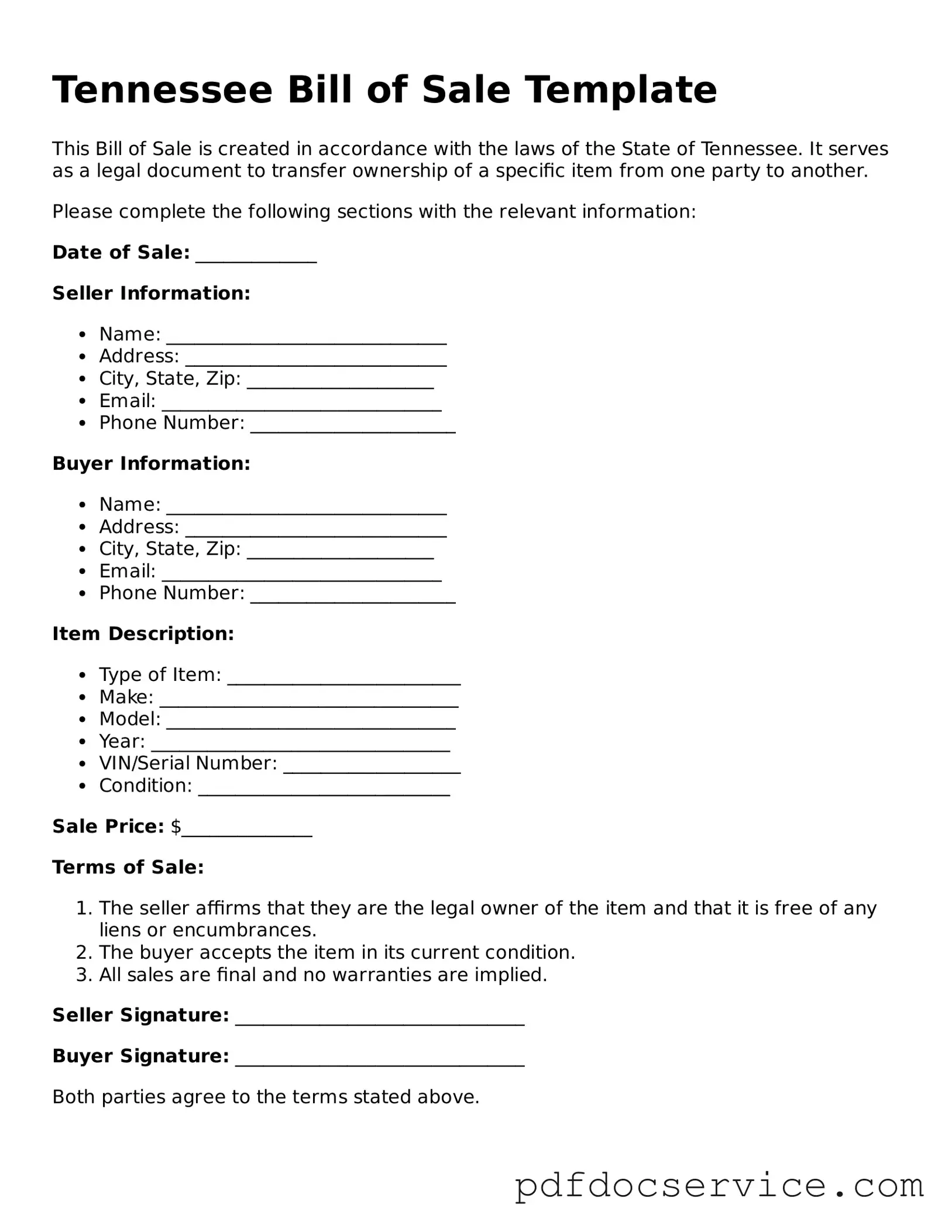Printable Bill of Sale Template for Tennessee
A Tennessee Bill of Sale form is a legal document that records the transfer of ownership of personal property from one party to another. This form serves as proof of the transaction and outlines important details such as the buyer, seller, and the item being sold. Using this form can help protect both parties and ensure a smooth transfer process.
Open Bill of Sale Editor

Printable Bill of Sale Template for Tennessee
Open Bill of Sale Editor

Open Bill of Sale Editor
or
Get Bill of Sale PDF
Finish the form now and be done
Finish Bill of Sale online using simple edit, save, and download steps.